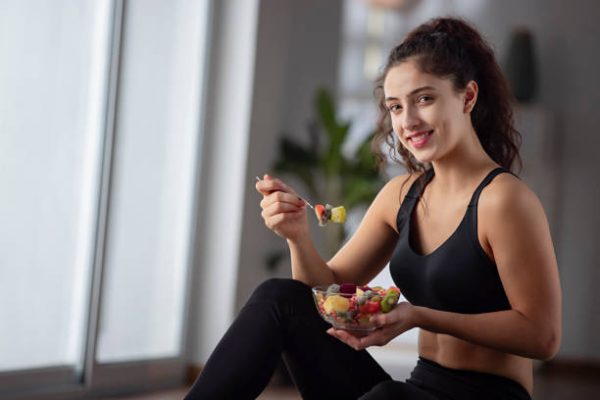Weight Loss
15 Smart Food Combos for Effective Weight Loss
The best way to lose weight is to eat less and exercise more. It’s simple, but it’s the most effective way to slim down for good. But what about when you’re not able to work out? What if you’ve been working out your whole life, and it’s time for a break? Or what if your job allows you to work out less than you’d like? These are all reasons why food combinations can be so helpful. They allow people of all shapes and sizes to find ways to lose weight without changing their lives.
There are many different types of food combinations. Some people believe that the most important part of a meal is the sauce or dressing that is served with it. Others believe the most important aspect of a meal is its meat or vegetables.
Related: How to Burn Calories for Weight Loss and Metabolism
Each person has preferences when it comes to what they would like to eat, and many different types of foods can be combined for a more nutritious meal. Your body will thank you for eating these foods and your waistline!
Here are Some Great Food Combos for Losing Weight:
Oatmeal and Berries: Oatmeal is a low-calorie, high-fiber food that will keep you feeling full for hours. Adding berries to your oatmeal boosts antioxidants, vitamins, and minerals.
Eggs and Spinach: Eggs are a great source of protein, and spinach is a nutrient-dense leafy green. Together, they provide a balance of nutrients that support weight loss.
Salmon and Avocado: Salmon is rich in omega-3 fatty acids, which have been shown to promote weight loss. Avocado is a good source of healthy fats and can help curb your appetite.
Greek Yogurt and Berries: Greek yogurt is a great source of protein, which helps to keep you feeling full. Berries are low in calories and high in antioxidants.
Quinoa and Vegetables: Quinoa is a low-calorie, high-protein grain that will keep you feeling full. Adding vegetables to your quinoa boosts nutrients, fiber, and low-calorie volume.
Chicken and Broccoli: Chicken is a lean source of protein, and broccoli is a low-calorie, nutrient-dense vegetable. Together, they provide a balance of nutrients that support weight loss.
Beans and Brown Rice: Beans are a good source of protein and fiber, while brown rice is a low-calorie, whole grain. Together, they provide a balance of nutrients that support weight loss.
Almonds and Greek Yogurt: Almonds are a good source of healthy fats and protein, while Greek yogurt is a good source of calcium and protein. Together, they provide a balance of nutrients that support weight loss.
Sweet Potatoes and Turkey: Sweet potatoes are a low-calorie, nutrient-dense vegetable, while the turkey is a lean source of protein. Together, they provide a balance of nutrients that support weight loss.
Cottage Cheese and Fruit: Cottage cheese is a good source of protein, while the fruit is a low-calorie source of natural sugar. Together, they provide a balance of nutrients that support weight loss.
Related: 4 Ways to Improve the Sustainability of Your Eating Behavior
Turkey and Cucumber: Turkey is a lean source of protein, while cucumber is a low-calorie, nutrient-dense vegetable. Together, they provide a balance of nutrients that support weight loss.
Peanut Butter and Apple: Peanut butter is a good source of healthy fats and protein, while apples are a low-calorie, nutrient-dense fruit. Together, they provide a balance of nutrients that support weight loss.
Tuna and Tomato: Tuna is a lean source of protein, while tomatoes are a low-calorie, nutrient-dense vegetable. Together, they provide a balance of nutrients that support weight loss.
Brown Rice and Vegetables: Brown rice is a low-calorie, whole grain, while vegetables are low-calorie, nutrient-dense foods. Together, they provide a balance of nutrients that support weight loss.
Hummus and Veggies: Hummus is a good source of healthy fats and protein, while vegetables are low-calorie, nutrient-dense foods. Together, they provide a balance of nutrients that support weight loss.
Bottom Line
If you’re working on losing weight, this is the essential guide for what to eat, and when to re-feed yourself. Of course, a diet plan is not the only thing you need to support your fat loss goals. Monitoring your calorie intake can be another crucial step, but with an app that reminds you to eat at regular intervals, motivation should be much easier to maintain.


